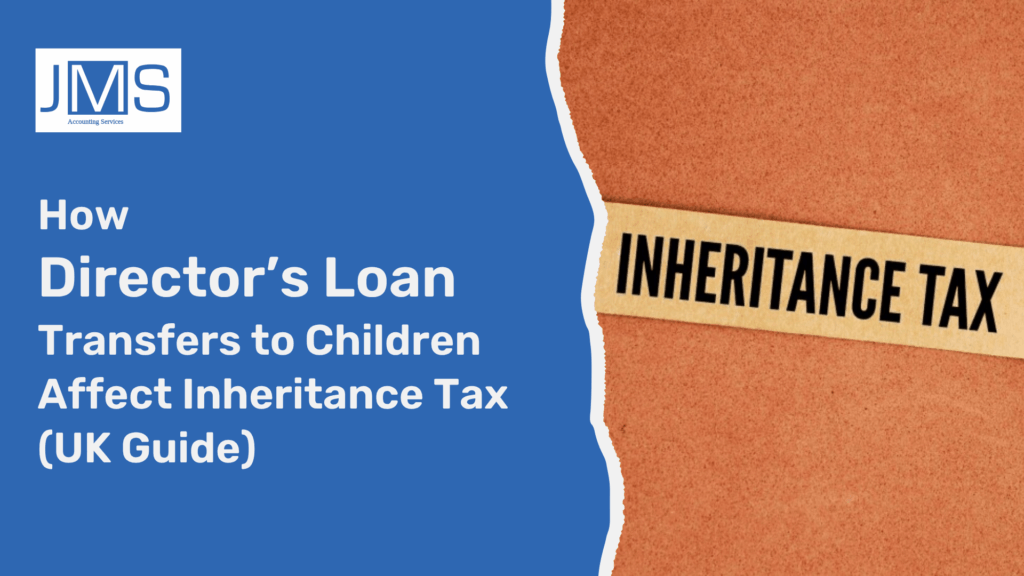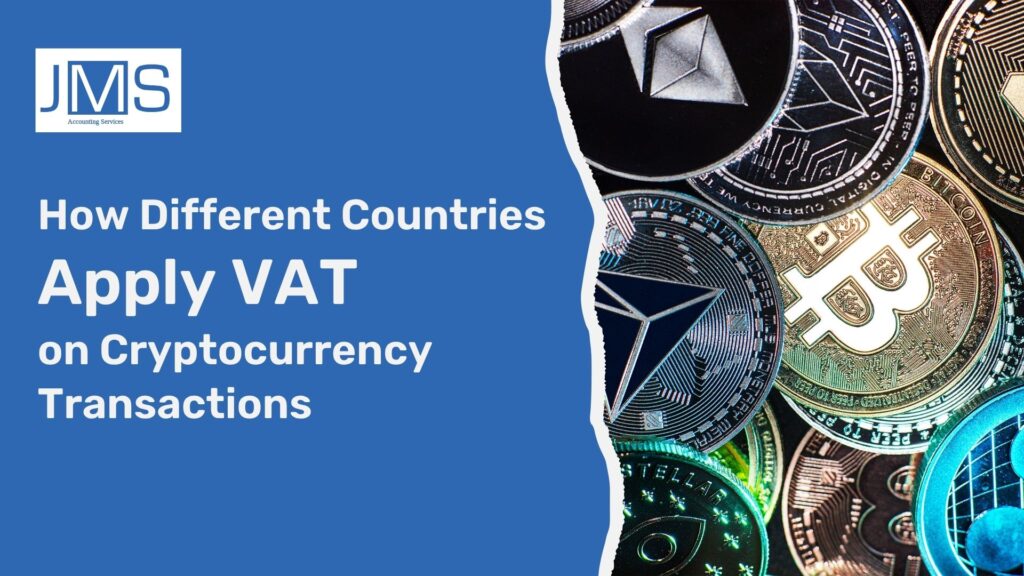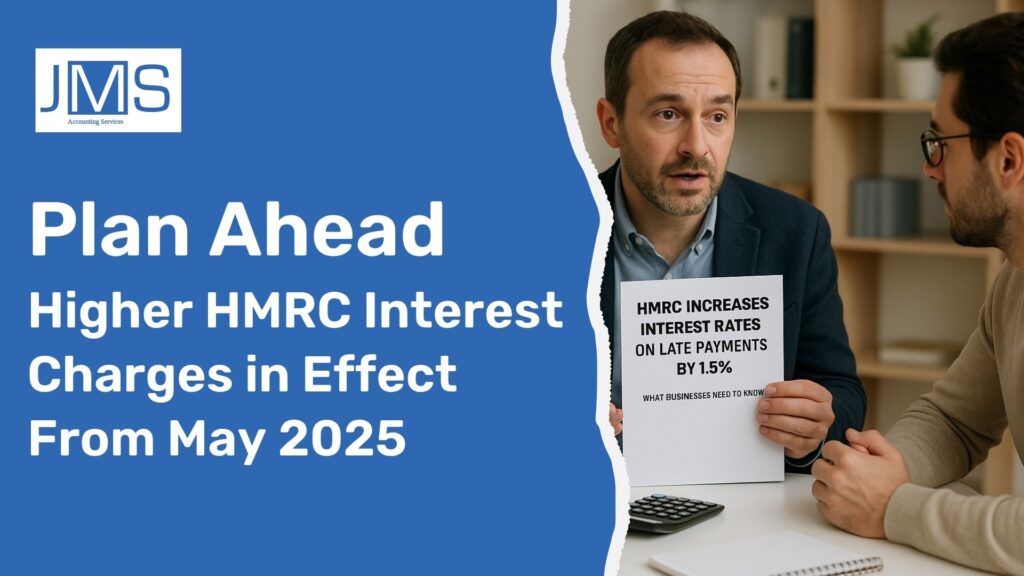How Director’s Loan Transfers to Children Affect Inheritance Tax (UK Guide)

Assigning directors’ loans to children can have significant inheritance tax (IHT) implications, depending on how the transaction is structured and the timing. Here are some key points to consider: 1. Nature of the Loan Transfer Gift vs. Loan:When you assign a director’s loan to a child, it can be viewed as either a gift or a transfer of the loan amount. If the loan is simply transferred without formal repayment terms, HM Revenue & Customs (HMRC) may consider it a disposal or gift. Formal Assignment:Proper documentation of the transfer as an assignment of the debt can help clarify the nature of the transfer. 2. Potential Inheritance Tax (IHT) Implications Gift with Potentially Exempt Transfer (PET):If the transfer of the loan is considered a gift, it may be classified as a PET. Such gifts are potentially exempt from IHT if the donor survives for seven years after making the gift. Immediate IHT Liability:If the transfer is made and the donor dies within seven years, the value of the gift (the loan amount) may be included in the estate for IHT purposes, potentially increasing the estate’s IHT liability. Charge on the Recipient:If the transfer involves a debt owed to the estate (e.g., if the director’s loan is assigned to a child), the child’s receipt of the loan may not be a taxable event per se, but the value of the gift remains relevant for IHT. 3. Impact on the Estate Depletion of the Estate:Assigning loans to children effectively reduces the estate’s value, which may decrease future IHT liabilities if the estate is below the nil-rate band. Potential for Clawback:If the loan is forgiven or not repaid, it could be seen as a gift, triggering IHT considerations. 4. Other Tax Considerations Income Tax and Capital Gains Tax:The transfer of the loan itself may not trigger immediate income or CGT, but if the loan is forgiven, there could be CGT implications. Chargeable Events:Forgiveness of the loan could be a chargeable event for IHT purposes, especially if the loan is considered a gift. 5. Planning Tips 6. Consult a Professional Given the complexity and the potential for significant tax consequences, it’s advisable to consult with a qualified tax advisor or estate planner before proceeding with such transactions. Summary Assigning directors’ loans to children can be considered a gift for IHT purposes, potentially triggering a PET that is only exempt if the donor survives seven years. If the donor dies within that period, the value of the loan may be included in the estate for IHT calculation. Proper documentation and planning are essential, and professional advice is strongly recommended.
How Different Countries Apply VAT on Cryptocurrency Transactions

The treatment of VAT (Value Added Tax) on cryptocurrencies varies depending on the country and its specific tax laws. Here’s a general overview: European Union (EU) Cryptocurrencies as means of payment: Generally, the EU treats cryptocurrencies as a form of electronic money or financial instruments rather than goods or services. VAT applicability: In many EU member states, the exchange of cryptocurrencies for fiat currency (such as euros, dollars) is exempt from VAT. This is because cryptocurrencies are often considered a means of payment. Buying and selling crypto: When you buy or sell cryptocurrencies, VAT typically does not apply to the transaction itself, but services related to crypto (like trading platforms) might be subject to VAT. United Kingdom HMRC stance: HM Revenue & Customs (HMRC) considers cryptocurrencies as property, not currency. VAT on crypto: Generally, cryptocurrency transactions are exempt from VAT in the UK, but certain services related to cryptocurrencies (like brokerage or trading platforms) may be subject to VAT. United States IRS classification: The IRS considers cryptocurrencies as property for tax purposes. VAT implications: The U.S. does not have a VAT system; instead, it has sales tax, which varies by state. Cryptocurrency transactions are generally not subject to sales tax, but the sale of goods or services for crypto may trigger sales tax depending on the jurisdiction. Other countries The VAT or sales tax treatment of cryptocurrencies varies widely: Summary
Plan Ahead: Higher HMRC Interest Charges in Effect From May 2025

In a move that has caught the attention of many UK businesses and taxpayers, Her Majesty’s Revenue and Customs (HMRC) has announced an increase in the interest rates applied to late payments. Effective immediately, the interest rate on overdue amounts has been raised by 1.5%. This change underscores the government’s aim to encourage timely payments and maintain fiscal discipline. What Has Changed? Previously, the interest rate for late payments was set at a certain baseline (for example, 3.0%). With the recent adjustment, the new rate has risen to 4.5%. This means that any outstanding tax liabilities, VAT, or other dues that are not settled by their due date will accrue interest at this higher rate. Why Did HMRC Increase the Interest Rate? The primary motivation behind this increase is to: Encourage prompt payment: Higher interest rates serve as a deterrent against late payments, helping HMRC improve cash flow and reduce the administrative burden associated with chasing overdue accounts. Align with economic conditions: The rate change may reflect broader economic factors, such as inflation or changes in the Bank of England base rate, which influence borrowing costs and financial discipline. Impact on Businesses For businesses and individuals, this change has several implications: Higher costs for overdue payments:Late payment penalties will now accrue more interest, increasing the total amount owed if payments are not made on time. Cash flow considerations: Companies may need to reassess their cash flow management strategies to avoid penalties and additional interest charges. Incentive for timely filing and payment: The increased rate underscores the importance of adhering to deadlines for submitting tax returns and making payments. Practical Tips for Businesses Review payment schedules: Ensure all tax liabilities are scheduled and paid well before the due date. Set up reminders: Use calendar alerts or accounting software to track upcoming deadlines. Maintain accurate records: Keep detailed records of payments made and correspondence with HMRC. Seek professional advice: If uncertain about payment obligations or facing cash flow issues, consult a tax advisor or accountant. Conclusion HMRC’s decision to increase interest rates on late payments by 1.5% highlights the importance of timely tax compliance. While the higher rates may seem burdensome, they serve as a reminder for businesses to prioritize punctual payments, helping to avoid unnecessary costs and potential penalties. Staying proactive and organized can mitigate the impact of these changes and ensure smooth financial operations. Stay informed and plan ahead to keep your business compliant and financially healthy.
Why UK landlords need a Power of Attorney

In the UK, landlords may seek Power of Attorney (PoA) for several reasons related to managing their property portfolios, especially when they are unable to personally handle certain affairs. Here are some common reasons why UK landlords might need a Power of Attorney: Types of Power of Attorney Relevant to Landlords General Power of Attorney: Grants broad authority over financial and property matters, but typically ceases if the donor becomes mentally incapacitated.Lasting Power of Attorney (LPA): Specifically designed to continue acting even if the donor becomes mentally incapable; often preferred for ongoing property management. Important Considerations Legal Validity: PoA documents must be properly drafted and registered (for LPAs) to be valid.Trust and Selection: Choosing a trustworthy attorney is crucial because they will have significant control over property affairs.Limitations: PoA does not transfer ownership but allows the attorney to act on behalf of the landlord within specified powers. Summary UK landlords need Power of Attorneys primarily to facilitate the management, sale, or legal handling of their property interests when they are unavailable, incapacitated, or wish to delegate authority securely and legally. If you need specific advice or help drafting a PoA, consulting a solicitor specializing in property law is recommended.
HMRC Crackdown on Cryptocurrency traders

In recent years, more and more people have invested in cryptocurrency, with some making instant gains of thousands and some losing everything. From April 2027, OECD’s Crypto-Asset Reporting Framework comes into effect, meaning that HMRC will have access via all crypto platforms to individual transactions.
Accountants are struggling to work with HMRC

Accountants are struggling to work with HMRC at even the most basic level and are calling for urgent improvements
The taxman’s dodgy data

Over the years of JMS Accounting operation, we have dealt with many data issues in relation to HMRC. When HMRC get things wrong they cause stress and waste large amounts of time for both our practice and our clients. Clients will often not understand that HMRC are at fault and our practice wastes many man-hours resolving mistakes by HMRC.
It was some comfort to our practice to read this article in the Spectator that highlighted the extensive data problems problems at HMRC. It doesn’t solve the issues, but it helps to understand the issues that our practice has to deal with were not just experienced by us but many businesses.